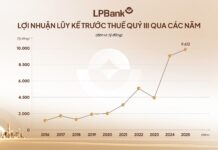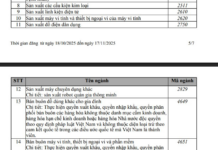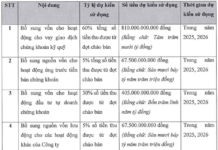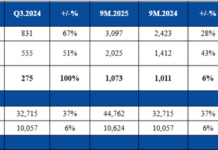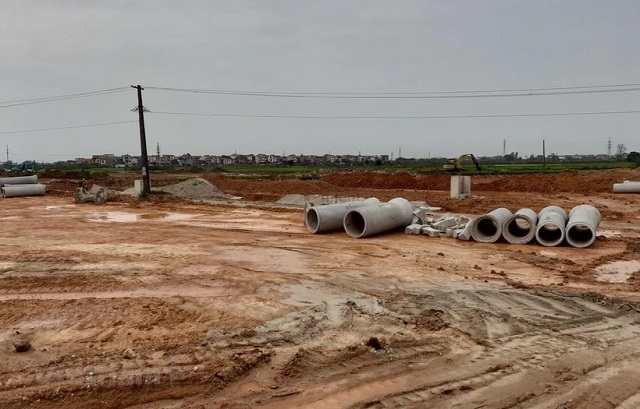
Numerous real estate enterprises, especially in Hanoi and Ho Chi Minh City, are currently facing significant challenges related to land pricing, as expressed by Mr. Nguyen Quoc Hiep, Chairman of the Vietnam Construction Contractors Association.
|
Mr. Hiep voiced his concern that if there is no timely intervention from relevant authorities and the legal system, real estate prices, especially for apartments, may continue to soar uncontrollably.
It is “unreasonable” for apartments to be priced at 500 million VND per square meter.
During a discussion with reporters on November 28 regarding land pricing, Mr. Hiep mentioned that many real estate projects have been delayed in the construction investment phase due to unresolved land pricing issues. Some projects have even been completed but cannot be released to the market because the land price has not been determined.
“A noticeable trend recently is that most localities are perplexed about issuing land price lists and tend to wait and see what others do. While the land price is supposed to be based on market prices (i.e., the average market price), the current approach relies on auction prices (using the auction price of a small area as the market price for a larger area). This situation has caused many projects to come to a standstill, resulting in significant waste and market congestion,” Mr. Hiep worriedly shared.
More alarmingly, many localities are referring to Ho Chi Minh City’s extremely high land price list, and there is a general tendency to set land prices as high as possible. According to Mr. Hiep, this high land pricing is driving up real estate prices, creating a “vicious circle” between housing prices, land prices, businesses, and the market.
“There are projects where the land price doubled in just six months. Many apartment projects have reached prices of 500 million VND per square meter. This unreasonable price is due to the high land pricing,” Mr. Hiep revealed.
Mr. Hiep also stated that real estate prices in Vietnam are currently higher than in the region. “If there is no timely intervention from relevant authorities and the legal system, real estate prices may continue to soar uncontrollably, and Vietnam’s real estate prices will be the highest in the world. When prices exceed the market’s acceptable level, and no one can afford to buy, real estate businesses may face the risk of collapse,” he expressed his concern.
From an economic perspective, Dr. Can Van Luc, BIDV’s Chief Economist, also emphasized that determining land prices based on market principles is the most crucial innovation. This approach ensures that land prices are closer to market prices, addressing the two-price phenomenon and serving as a foundation for compensation, site clearance, financial obligations to the state, real estate pricing, investment cost-effectiveness calculations, and clearly defining the responsibilities of the parties involved.
However, Mr. Luc also stressed that applying land prices closer to market prices could increase land use costs and real estate prices, sales prices, and rental prices compared to the previous land price list. “It is expected that after the official implementation of the land price list in 2026, land prices in some localities may increase by 2 to 7 times compared to the current land price list,” he noted.
Mr. Nguyen Van Dinh, Chairman of the Vietnam Real Estate Brokers Association, pointed out that the localities’ announcement of the new land price lists and planning could directly impact real estate prices.
 Mr. Nguyen Quoc Hiep, Chairman of the Vietnam Construction Contractors Association. (Photo: PV/Vietnam+)
|
“There is a risk that some localities’ land prices will be pushed up due to the current high compensation and site clearance prices in Hanoi and Ho Chi Minh City, leading to increased investment costs and a sudden surge in product prices,” Mr. Dinh warned. He emphasized that if the rising real estate prices are not intervened early, it will lead to many negative consequences for the market and society.
A reasonable land pricing procedure is necessary.
To address this situation, Mr. Nguyen Quoc Hiep, Chairman of the Vietnam Construction Contractors Association, suggested that the Ministry of Natural Resources and Environment should pay attention to and provide guidance on land pricing procedures. He also recommended constructing land price lists with a solid foundation, practicality, and suitability for each locality.
“In my opinion, land pricing cannot be based on auction prices. For example, in Thanh Oai district, Hanoi, the local government should not use the very high land price from a recent auction as the market price for dozens or hundreds of hectares of adjacent land,” Mr. Hiep shared.
Additionally, Mr. Hiep suggested that to meet the needs of customers with different budgets and economic conditions, enterprises should adjust their market prices based on tax policies and infrastructure development.
Mr. Nguyen Van Dinh, Vice President of the Vietnam Real Estate Association and Chairman of the Vietnam Real Estate Brokers Association, also emphasized the need for the state to promptly implement supportive measures to “clear the way” for commercial low-cost housing projects, social housing, and additional recovery policies for the vacation real estate market.
Regarding the role of the Ministry of Construction, Mr. Hoang Hai, Director of the Department of Housing and Real Estate Market Management, suggested that to promote the safe, healthy, and sustainable development of the real estate market, it is necessary to amend, supplement, and promulgate new tax laws. He proposed introducing higher taxes for those who use large land areas, multiple houses, or leave land idle, ensuring consistency with other new contents in the current laws. These measures aim to improve land use efficiency, stabilize state finances, and refer to international practices and Vietnamese law.
In addition, localities should focus on resolving legal and procedural obstacles in preparing investment projects for real estate and housing. They should further promote the implementation of land-use right auctions, project investment auctions with land use, approval of investment policies, and selection of project investors. It is also crucial to determine land prices, calculate land use fees, transfer land, and lease land, as well as accelerate and reform administrative procedures for real estate and housing projects to increase market supply.
Hung Vo









